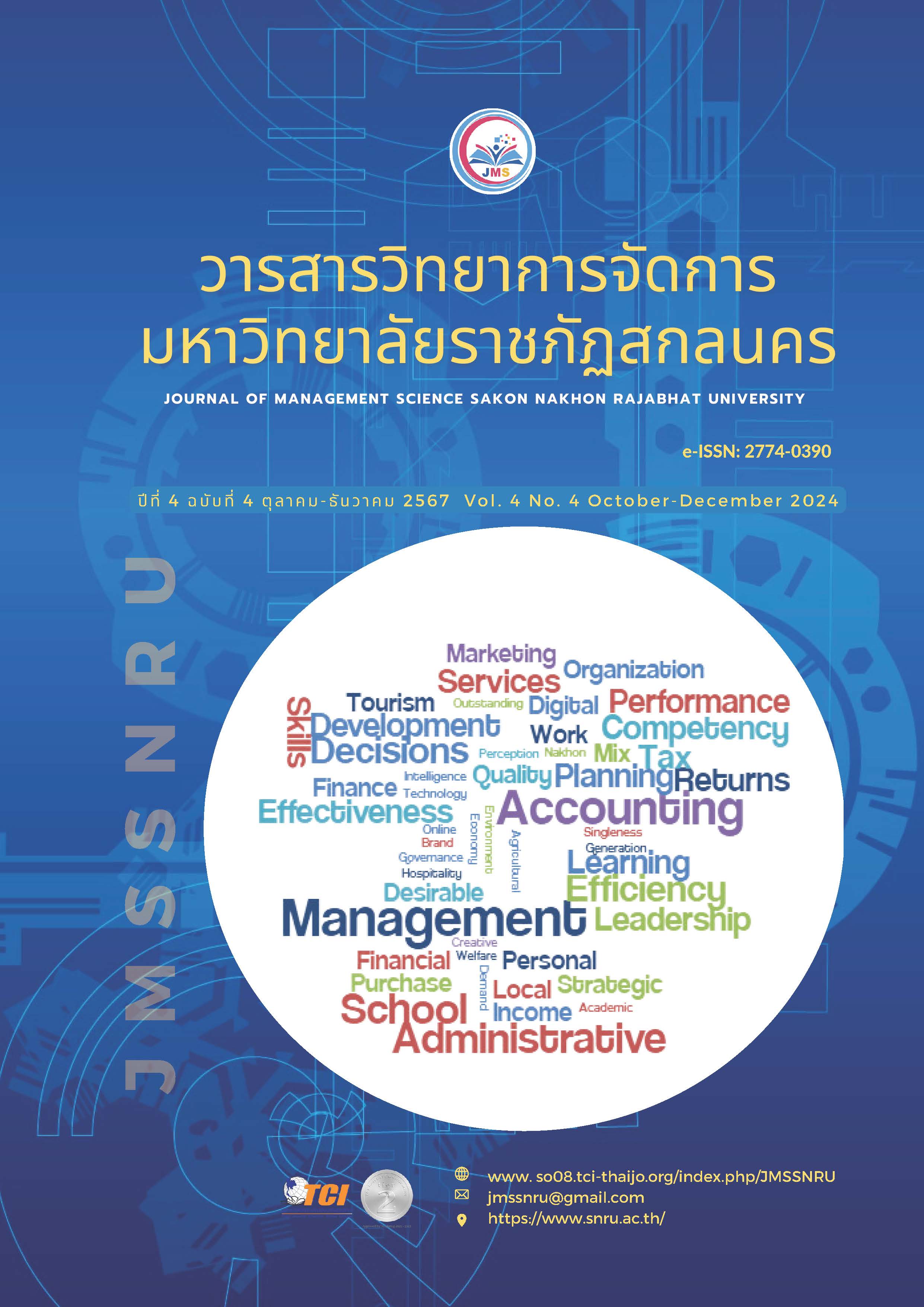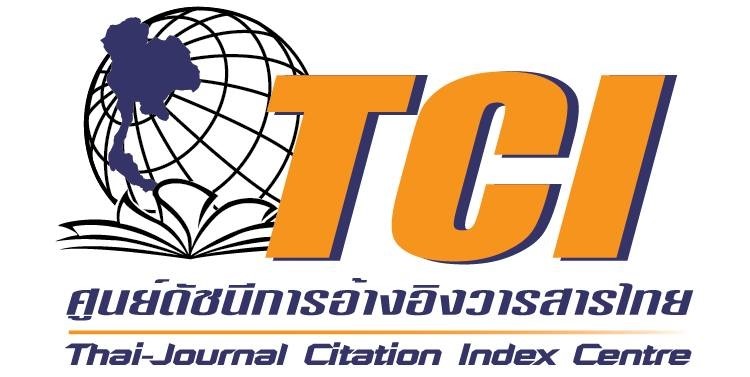11 ความสามารถหลักสำหรับการเป็นผู้นำที่มีประสิทธิภาพและประสิทธิผล
คำสำคัญ:
ความสามารถหลัก, ผู้นำ, ประสิทธิภาพ, ประสิทธิผลบทคัดย่อ
ความสามารถหลักของผู้นำเป็นปัจจัยสำคัญที่จะส่งผลให้การดำเนินงานในองค์กรประสบความสำเร็จ บทความฉบับนี้จึงนำเสนอความสามารถหลักที่มีความจำเป็นสำหรับผู้นำ ซึ่งได้ศึกษาจากตำรา หนังสือ และบทความที่เกี่ยวข้องจำนวนมาก แล้วสรุปเป็น 11 ความสามารถหลักสำหรับการเป็นผู้นำที่มีประสิทธิภาพและประสิทธิผล ดังนี้ 1) ความสามารถในการบริหารจัดการอย่างมีประสิทธิภาพและประสิทธิผล 2) ความสามารถในการวางแผนในการดำเนินงานทั้งระบบ 3) ความสามารถในการตัดสินใจอย่างเหมาะสมกับสถานการณ์ 4) ความสามารถในการนำผู้ตามไปสู่ทิศทางที่ถูกต้อง 5) ความสามารถในการควบคุมทิศทางการดำเนินงานให้เป็นไปตามเป้าหมาย 6) ความสามารถในการจูงใจให้ผู้ตามปฏิบัติตามด้วยความเต็มใจ 7) ความสามารถในการพัฒนาตนเองและผู้ตามอย่างเหมาะสมกับบริบท 8) ความสามารถในการบริหารทีมงานให้สอดคล้องกับแผนขององค์กร 9) ความสามารถ ในการสื่อสารอย่างเหมาะสม 10) ความสามารถในการจัดการความขัดแย้งในทุกระดับ และ 11) มีความสามารถในด้านจริยธรรมที่เป็นแบบอย่างอันดีให้กับผู้ตาม
เอกสารอ้างอิง
โชติชวัล ฟูกิจกาญจน์. (2559). การพัฒนาทรัพยากรมนุษย์. กรุงเทพฯ: ซีเอ็ดยูเคชั่น.
โชติชวัล ฟูกิจกาญจน์. (2562). การจัดการขีดความสามารถ. กรุงเทพฯ. สำนักพิมพ์ปัญญาชน.
Adair, J. (2007). Leadership for innovation: How to organize team creativity and harvest ideas. London: Kogan Page.
Ash, R. & Persall, M. (2007). The principal as chief learning officer, the new work of formative leadership. Birmingham: Stamford University Birmingham.
Bass, B.M & Avolio, B. J. (1994) Improving Organizational Effectiveness through Transformational Leadership. Thousand Oaks, CA: Sage.
Bass, B. M. & Riggio, R. E. (2006). Transformational leadership (2nd ed). New Jersey: Lawrence Erlbaum Associates.
Blake, R. & Mouton, J. (1964). The Managerial Grid: The Key to Leadership Excellence. Houston: Gulf Publishing.
Blake, R. & Mouton, J. (1985). The Managerial Grid III: The Key to Leadership Excellence. Houston: Gulf Publishing.
Block, P. (1993). Stewardship: Choosing Service over Self-Interest. San Francisco, CA: Berrett-Koehler.
Davis, R. A. (2010). The Intangibles of Leadership: The 10 Qualities of Superior Executive Performance. Mississauga: John Wiley & Sons.
DuBrin, A. J. (2010). Principles of leadership. South-Western: Cengage learning.
Halpin, A. W. & Winer, B. J. (1957). A factorial study of the leader behavior descriptions. In Stogdill, R. M. & A. E. (eds.), Leader behavior: Its description and measurement. Bureau of Business Research, College of Commerce and Administration, Ohio State University.
Hogan, R., Curphy, G. J., & Hogan, J. (1994). What We Know About Leadership: Effectiveness and Personality. American Psychologist, 49 (6), 493-504.
Howell, J. P. & Costley, D. L. (2001). Understanding behaviors for effective leadership. New Jersey: Prentice-Hall.
Islami Gems. (n.d.). Michael Hart-Prophet Muhammad is The Most Influential Man Ever. Retrieved June 27, 2024, from https://islamigems.com/prophet-muhammad-most-influential-man-ever/.
Islami Gems. (n.d.). Muhammad is the Greatest Leader of All times: American Psychoanalyst Jules Masterman. Retrieved June 27, 2024, from https://islamigems.com/muhammad-is-the-greatest-leader-of-all-times-american-psychoanalyst-jules-masserman/.
Kaminker, J. P. (2011). The leadership factor. London. UK: Collier Macmillan.
Katz, R. L. (1955). Skills of an effective administrator. Harvard Business Review, 33(1), 33-42.
Koontz, H. & Weihrich, H. (2015). Essentials of Management: An International, Innovation, and Leadership Perspective. New Delhi: McGraw Hill.
Leahy, T. (2013). Management in Ten Words. London: Random House Business Books.
Lussier, R. N. & Achua, C. F. (2001). Leadership: Theory, Application, Skill development. Ohio: South-Western College.
Lussier, R. N. & Achua, C. F. (2007). Effective leadership (3rd ed.). Ohio: South-Western.
McGregor, D. (1966). Leadership and Motivation: Essays of Douglas McGregor. Cambridge: MIT Press.
Mullins, M. (2011). Management and Organizational behavior. (6th ed.). New Jersey: Prentice Hall.
Palus, C. J. & Horth, D. M. (2005). The leader’s edge: Six creative competencies for navigating complex challenges. San Franscisco: Jossey Bass.
Parker, J. P. & Begnaud, L. G. (2004). Developing creative leadership. Portsmouth, NH: Teacher Ideas Press.
Raelin, J. A. (2003). Creating leaderful organizations How to bring out leadership in everyone. San Franscisco: Berrett-Koehler.
Robbins, S. P. & Judge, T. A. (2008). Essentials of organizational behavior. New Jersey: Pearson Prentice-Hall.
Schermerhorn, J. R. (2005). Management (7th ed). New York: John Wiley & Sons.
Scholtes, P. R. (1998). The Leader’s Handbook: Making Things Happen, Getting Things Done. New York: McGraw Hill.
Yukl, G. A. (2006). Leadership in organization (6th ed). New Jersey: Pearson Prentice-Hall.
ดาวน์โหลด
เผยแพร่แล้ว
รูปแบบการอ้างอิง
ฉบับ
ประเภทบทความ
สัญญาอนุญาต
ลิขสิทธิ์ (c) 2024 วารสารวิทยาการจัดการ มหาวิทยาลัยราชภัฏสกลนคร

อนุญาตภายใต้เงื่อนไข Creative Commons Attribution-NonCommercial 4.0 International License.
บทความที่ตีพิมพ์ในวารสารวิทยาการจัดการ มหาวิทยาลัยราชภัฏสกลนคร เป็นทัศนะ ลิขสิทธิ์ และความรับผิดชอบของผู้เขียนเจ้าของผลงาน






